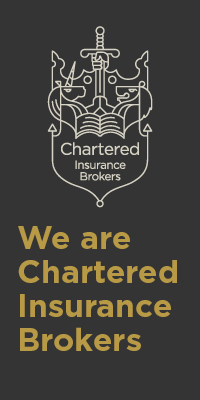Update on Unoccupied Premises

As a result of Government guidance, a number of business premises are now closed due to COVID-19. But what does this mean for your buildings insurance cover?
Normally, if your building is going to be unoccupied for more than a set number of days (on average around 30 days), you must notify your insurance provider as this will impact the cover offered in your policy.
However, due to the current situation many insurers are now relaxing their position on temporarily unoccupied premises. A number of them now consider temporarily unoccupied to mean where you have followed Government advice to close your premises and it will be out of use for up to 90 consecutive days or in some cases have suspended these conditions in there policy wordings.
Some insurers have also waived requirements for their business customers to immediately notify them of their unoccupied status. This should help those customers concentrate on managing their businesses and allow insurers’ call centres to focus on managing the significant number of insurance claims being processed.
At present, not all insurers have taken these decisions so if you are unsure, contact your insurance broker, check the latest advice on your insurers website or speak to them directly for clarification.
Regardless of how long your premises will be closed for, it is advisable that you take precautions to protect your building and business assets. Below are some key recommendations from insurers to consider:
- Where practical and safe, you should endeavour to inspect your premises internally and externally and keep a log.
- Risk assessments should be carried out on the changing risk/lack of supervision in place.
- Any and all hazardous processes to be shut down safely and not run unmanned, safety should not be compromised.
- Heating should be left on, but other critical services powered down if not required, unless to support protection or detection systems.
- Drain all water and fuel supply tanks, apparatus and pipes.
- All external areas must be clear of waste and combustible materials.
- Consider waste build-up and the controls needed if waste collection services are affected.
- All fire protection, detection, and security systems to remain active and monitored remotely where possible.
- Adequacy of security controls should be assessed based on likely periods of unoccupancy and type of business, particularly in high-crime areas.
- Secure and seal all letter boxes and openings and redirect post if necessary.
- Consideration should be given to the accumulation of vehicles, proximity to buildings, and their security when premises are unattended.
- Perimeter security, fences and lighting should be in good condition and operational.
- All physical security and locking devices should be working and in place.
- All protection and detection systems must be operational
- Ensure there are no leaking fluids or spills and any unsafe conditions are identified and remedied
If you have any questions or concerns regarding your insurance cover, contact Russell Scanlan. We are all now working remotely, but a full list of contact details can be found here.









